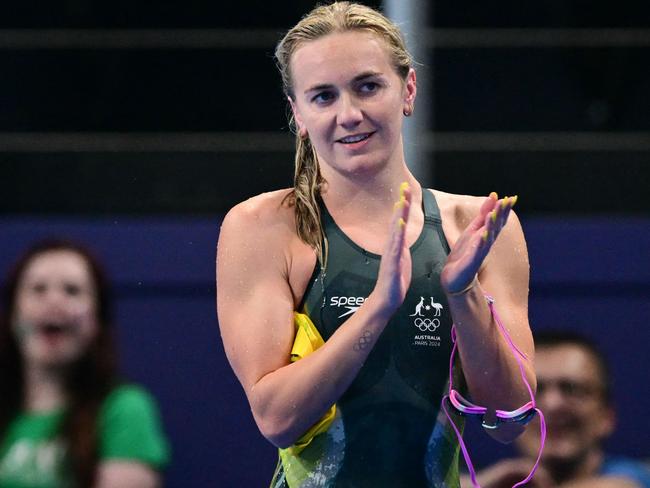Paris organisers warned of their vegan-heavy menu in the athletes village a month before Games
It’s been revealed that Paris organisers had been warned of their vegan-heavy menu in place for the athlete’s village a month before the opening of the Games, with the International Meat Secretariat writing to officials in June.
Olympics
Don't miss out on the headlines from Olympics. Followed categories will be added to My News.
Olympic Games organisers were warned more than a month ago that their vegan-heavy menu at the Paris athletes’ village would prevent competitors from performing at their best.
Environmentally-conscious Paris 2024 officials determined 60 per cent of the food served at the village would be vegan, as they promised to halve the carbon footprint of each meal.
But the move proved problematic, as hungry athletes complained they were unable to get the sustenance they required to compete at the highest level.
The International Meat Secretariat, which represents farmers from across the globe including Australia, wrote to Games officials in June warning the plant-based diet they planned to enforce at the village would disparage farmers and affect athletes’ performance.
“It sends a very negative message to the public, demonising meat and other animal-sourced foods as bad for the environment and unhealthy, which is flawed, while not supporting French farmers and sustainable farming more broadly,” the letter, sent to Paris Organising Committee president Tony Estanguet on June 24 said.
The IMF detailed the dietary benefits of red meat and warned high-performance athletes could suffer if their intake was restricted.
“Unbalanced diets deficient in protein, both in terms of the amount as well as quality, will over time affect health,” the letter said.
“Proteins are needed to maintain muscle mass, for us to perform at our best physically and become stronger, particularly relevant to sporting endeavours.”
Mr Estanguet, who did not respond to the IMF’s letter, defended the vegan push before the Games began.
“It’s … our responsibility to educate the people who will be engaged in Paris 2024,” he said.
“It’s a collective duty now to change our habits and definitely to reduce our carbon footprint.”
But the move backfired spectacularly when scores of athletes complained, forcing organisers to order in an extra tonne of red meat and 700kg of eggs.

IMF secretary-general Phil Hadley told Sky News he felt somewhat vindicated for raising his concerns after Games officials were forced into the embarrassing backflip.
“I think it’s clear that you have elite athletes coming together to perform at their highest, in this their lifetime’s goal, and if you’re not providing them with the dietary intake they require, and a lot of them would require high levels of protein intake, then they’re going to fall short of their performance potential,” he said.
Former swimming champion James Magnussen revealed on the Matt & The Missile podcast that Australian athletes had been impacted by the dietary restrictions.
“I joked last night about the amount of vegan options in the village that they’re running out of meat, well, an Australian heavyweight boxer has come out, he wanted lamb chops, maximum two chops person. The guy’s six foot six, he’d be 100 (kg) at the best. Two chops,” he said.
Dr Hadley said his members had been shocked when they heard about the culinary plans, not just for the village, but also for spectators at Olympic events, where vegetarian meals are also being promoted in favour of red meat.
“It should have been explored a bit more fully before taking the decision to focus largely on plant-based proteins at the expense of those red-meat and animal-based proteins,” he said.
Dr Hadley applauded organisers for showcasing the best of France’s plant-based products but said they had missed an opportunity to promote French farmers who produce stainable red-meat products.
“It’s about balance,” he said.
“Meat and animal-based proteins play an important role in a healthy and balanced diet and to simply say meat is bad and plant-based products are good is a very, very simplistic approach.”
He said there was a lesson for Australian officials ahead of the Brisbane Games in 2032.
“Australia’s a well-recognised, global powerhouse in agricultural production and I hope the committee take that on board and takes to opportunity to present balanced, sustainably-produced products that include both animal-based proteins and plant-based proteins for the whole world to enjoy,” he said.






